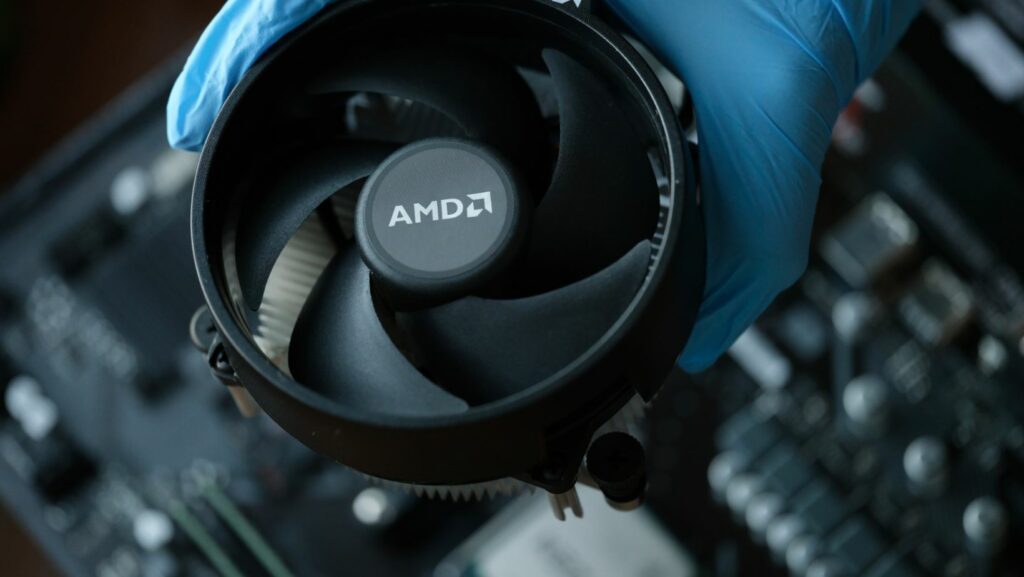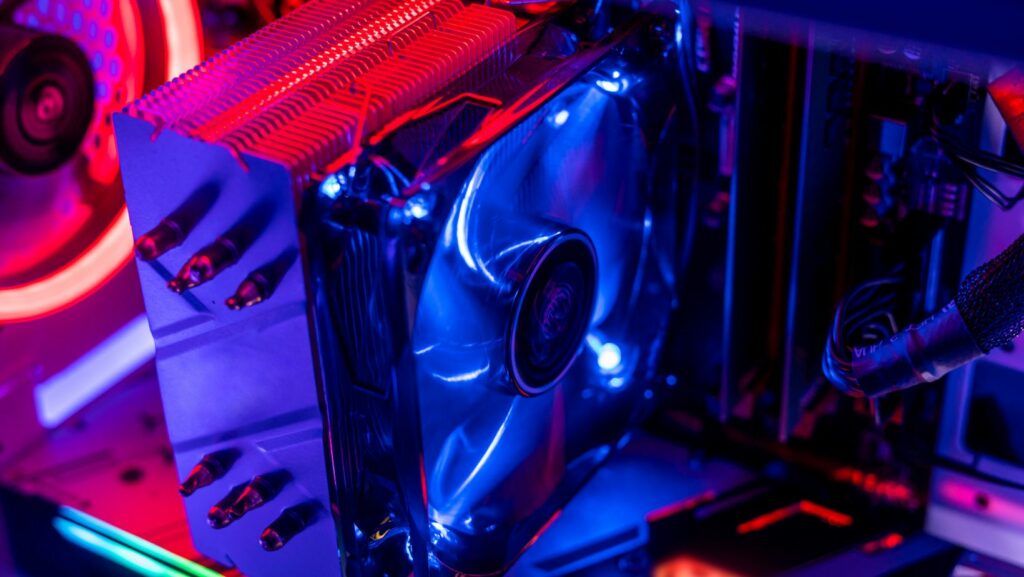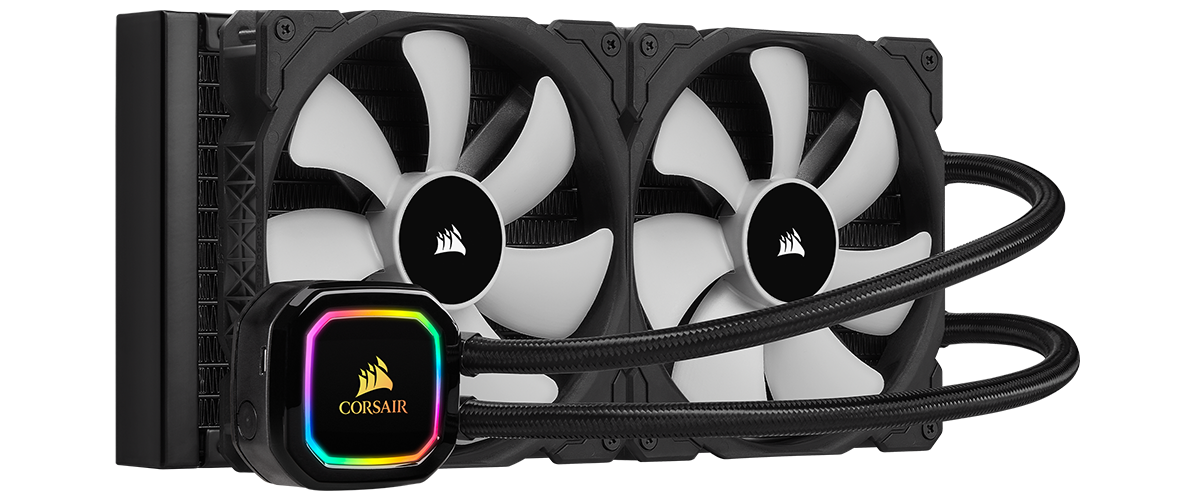Demanding processes such as gaming can cause your PC to heat up. When the CPU temperatures become too high, most processors reduce performance to protect the chipset from damage. The best computer systems have various cooling mechanisms that ensure that all the components stay cool.
Typically, air CPU coolers and liquid CPU coolers are the most common type of coolers. They come in varying designs for desktop and portable computer systems. This article explores the best CPU cooler for an Intel Core i9 10900K processor.
Best CPU Cooler for i9 10900K Processor Analysis- Top Picks
The 10th Generation Intel Core i9-10900K processor is a robust CPU with 10 Cores and 20 threads. It supports an FCLGA1200 socket and thermal solution specification of PCG2015D.
i9-10900k processor is among the best gaming chipsets, with a base frequency of 3.70 GHz and a max turbo frequency of 5.30 GHz. Since it features a TDP rating of 125W, pairing it with a CPU cooler will help provide optimal computing performance in demanding applications.
Here are the top CPU coolers for the i9-10900K processor.

Corsair Hydro Series H100i Pro RGB Cooler
Corsair’s Hydro Series H100i PRO RGB 240mm Liquid CPU Cooler is an excellent cooler. Its dual 120 mm fans feature magnetic levitation bearings and PWM technology to reduce noise levels.
This CPU cooler allows you to manage pump speeds for maximum performance. It comes with a modular design that allows quick installation. Designed with an RGB LED pump head, the H100i Pro cooler can spruce up your rig with vivid lighting effects.
Enermax LIQMAX III ARGB series 360mm CPU Liquid Cooler
With a proprietary dual-chamber water block design, the Enermax LIQMAX III ARGB series 360mm CPU liquid cooler separates its pump from the heat for durability. Its water block has a central coolant inlet (CCI) mechanism that facilitates speedy heat transfer.
This CPU cooler comes with dual-convex blades that create high-volume airflow of up to 72.1 CFM. Its anti-vibration rubber pads reduce noise during use. You can control this cooler’s RGB lighting through software or an included control box.
Noctua NH-D15 Air CPU Cooler
The Noctua NH-D15 Premium CPU Cooler is a dual tower air cooler that meets the highest computing demands. It comes with dual fans that offer increased airflow. Its fans support PWM for automated speed control. This cooler’s fins extend below the fin stacks, providing maximum cooling performance.
Fitted with six heat pipes and a wide fin stack, this cooler has a large surface area for heat dissipation. Its recessed lower fins make it compatible with high-end memory modules. The NH-D15 is compatible with various Intel and AMD CPU sockets.
How Does CPU Cooling Work?
CPU coolers draw heat from the CPU and dispel it from the equipment. The heat generated by the CPU is often distributed to its integrated heat spreader (IHS).
Both liquid and air coolers feature baseplates that absorb heat from the IHS. They then distribute the warmth using a heat pipe or liquid to a fan for cooling.
Here are the two types of CPU coolers:
1. Air CPU Cooling
Air CPU coolers are easy to install, reliable, and budget-friendly. They use thermal paste and a conductive baseplate to transfer heat from the IHS. Thermal energy travels from the baseplate to the integrated pipes. These pipes conduct the heat from the baseplate to an elevated heatsink.
Designed with thin metal fins, the heatsink disperses the heat so that an attached fan can push away the warm air. Air coolers come in a wide range of sizes. Larger air coolers expel heat faster, but they may take too much room.
2. Liquid CPU Cooling
Liquid coolers come in two main categories: custom cooling loops and All-in-One coolers. Liquid cooling produces significantly less noise compared to air coolers. Rather than using a fan, these cooling systems use a coolant-filled water block, pump, and radiator to dissipate heat.
The cooling process begins with a water block baseplate that draws heat from the CPU IHS. Thermal paste enhances conductivity between the two surfaces for faster cooling. The coolant in the water block absorbs thermal energy and moves to a radiator through the tubing. After cooling, the coolant re-enters the block and repeats the cycle.

Choosing the Right CPU Cooler for You
Are you upgrading your CPU cooler or building a new PC? Demanding applications call for a robust cooling system that will regulate processor temperatures. Below are the important factors to consider when selecting a new CPU cooler.
Thermal Dissipation
CPU coolers have TDP ratings that show the amount of heat they can dissipate in watts. Intel processors like the Core i9-10900K indicate this parameter as the Processor Base Power or Maximum Turbo Power.
Noise Levels
Although more fans often translate to better cooling, having many fans in your computer may increase the noise emissions. Measured in dB, sound levels vary for different fans. Look out for coolers with lower dB values.
Size
Before buying a CPU cooler, ensure that your PC case and motherboard have enough room. Also, ensure that installing the cooler will not affect other components like RAM modules. Dual-fan coolers are usually bulky, while AIO CPU coolers need space for fans.
Compatibility
Different CPU coolers have mounting brackets that fit specific socket sizes. Go for coolers that feature compatible mounting brackets for your CPU socket type.
Related: Can you upgrade laptop graphic card?
Aesthetics
Modern CPU coolers often feature customizable RGB lighting to enhance your rig’s aesthetics. You can personalize RGB CPU coolers to match your custom build and create a stunning lighting effect.
Consider buying a liquid CPU cooler with a high TDP rating for intensive applications such as gaming or overclocking.
Winding Up
Choosing the best cooler for your processor affects your CPU’s health and overall performance. The CPU cooler you choose for your i9-10900K processor will greatly depend on your budget and computer usage. Consider the factors highlighted above when buying a new CPU cooler. For serious overclocking, buy an AIO cooler like the Corsair H100i Pro.
FAQs
How do I keep my Core i9-10900K processor cool?
You can regulate operational temperatures using a CPU cooling system.
Which socket does the i9 10900K have?
The i9 10900K CPU has an LGA1200 socket.




